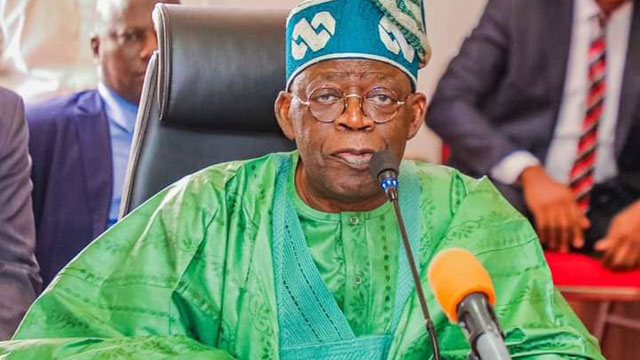As Nigeria marks the 30th anniversary of the annulment of the June 12, 1993, presidential elections, Corporate Accountability and Public Participation Africa (CAPPA) has charged President Bola Ahmed Tinubu to ensure that his administration works to protect and defend citizens’ democratic rights.
The group in a statement issued over the weekend, stressed that the only way citizens’ longstanding aspirations and hope in true democracy, encapsulated in the long-drawn struggle against the de-annulment of June 12 can be met, is when Nigerians can choose their leaders in a free, fair, and transparent process devoid of violence, ethnic and religious hatred.
The group said the President can demonstrate his avowed belief in democracy if he selflessly delivers the dividends of democracy to all Nigerians regardless of social status or ethnic, religious and political affiliation.
A statement issued by Policy and Research Officer of CAPPA, Zikora Ibeh, quoted the Executive Director, Oluwafemi Akinbode, as saying: “June 12 stands as a symbol of Nigerians’ steadfast struggle against military despotism and for democratic governance. While it is important to recognize and honour the heroes of this remarkable struggle, as past regimes have done, we believe that far more important is the need for Nigerians to fully enjoy their democratic rights in the selection of who governs them.
“They also must begin to feel the dividends of democracy for which they sweated, struggled and died during those long years of street battles and protests against the military rule.”
Speaking further, he said: “It has been over 24 years since democratic rule was restored in Nigeria, but it is arguable whether the form of governance that exists in Nigeria today can be described as a democracy or simply civilian rule. While there has been some marked progress in terms of a thriving multiparty democracy and regular elections, Nigeria’s record of human rights violations has not fundamentally improved.
“Instead, since 1999, Nigeria has experienced systematic attacks on democratic rights, attacks on the opposition, shrinking civic space, arbitrary arrests, illegal detentions, torture and extrajudicial killings by security agents, as well as suppression of the rights to freedom of expression and assembly, violation of the principles of separation of powers, assault on the judiciary and press freedom.
“More worrisome is the fact that every elected government since 1999, at the Federal or state level, has habitually disregarded Chapter 2 of the 1999 Constitution (As Amended), which clearly outlines the social contract between the State and the people with regards to the funding of public education, healthcare, living wages, and the provision of adequate jobs and shelter.”
Read Also: Administering discipline in schools
The group also pointed out that according to the Human Rights Measurement Initiative (HRMI) 2021 ‘Rights Tracker”, the first global report to assess the 13 different human rights contained in United Nations treaties for around 200 countries, Nigeria’s human rights record is “very poor and is worse than the average in sub-Saharan Africa.” Nigeria scored 54.6 percent for right to food, 48.2 percent for right to health; 31.7 percent for right to housing and 32.0 percent for right to work.
“The Nigerian state’s inability to provide quality and accessible public education, healthcare, jobs, shelter, living wages, and social security for most of its citizens is the greatest threat yet to the sustenance of Nigeria’s democracy.
“The present administration should not just pay homage to the legacy of June 12 but work selflessly to ensure that democracy means more than just regular elections but a better life for all Nigerians”,
“With the recent removal of fuel subsidy, the administration must work even more seriously to ensure that poor Nigerians are not adversely affected by rising prices of petrol and daily utilities. We urge the administration to ensure the judicious use of savings from subsidy removal to alleviate the sufferings that the policy has inadvertently caused ordinary people.” Oluwafemi added.

CAPPA equally charged the new administration to increase the minimum wage for all categories of workers and make substantial investments in socially beneficial infrastructural projects across the country to enhance the living standards of all Nigerians.
Follow The Trumpet on all our social media platforms for more updates:





